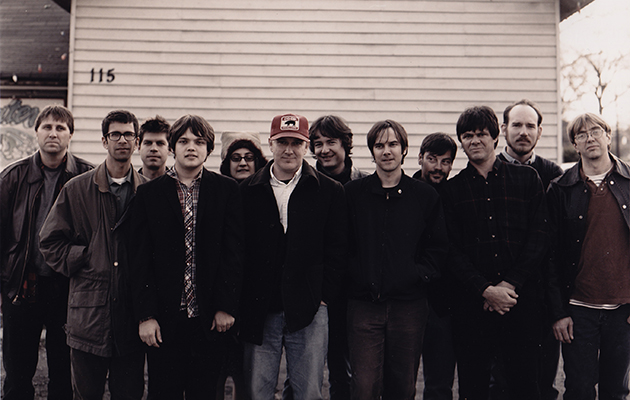Is A Woman
Merge/City Slang, 2002
Sparse, miminalist even by Lambchop standards; rarely have so many musicians conspired to make so little noise (no fewer than 17 players, plus “the girls” and, er, “crickets”, are credited on the sleeve). Bonus CD on limited edition includes somewhat startling covers of The Rolling Stones’ “Backstreet Girl” and Sisters Of Mercy’s “This Corrosion”.
Wagner: Mark Nevers and I really liked the big sound of Nixon, but I was starting to feel, especially when we played them live, that the songs were becoming buried. We wanted to figure out how to involve the same numbers of people, but emphasise the songs and voice more. So we came up with this sound for Is A Woman. We found this studio, Quad, where Neil Young had made a couple of records, and I think we kind of had that in the back of our heads – here was another sound Nashville could make.
To this day, I feel very fortunate about the way the band work. I think it comes from that early idea of us just getting together, and liking each other as people, and working on ideas we had in common, before the idea of being musicians had properly occurred to us. So while the process isn’t always easy, there’s usually not much drama.
“This Corrosion” was an accident. We’d rehearsed a few covers, and that was one of them. We were playing at All Tomorrow’s Parties, and I broke a string. I looked over at Tony [Crow, piano] and asked him to play something while it got changed, and he started playing that, the band picked up on it, so I had to sing it. And people liked it. It wouldn’t have happened at all if I hadn’t broken a string.
_______________________
Aw C’mon/No You C’mon
Merge/City Slang, 2004
Two albums released simultaneously. A glorious trove of the ’Chop’s patent chamber pop, freighted with exquisite instrumentals. Veteran country orchestra The Nashville String Machine feature, not for the first time. Wagner’s vocals and words mixed way down low: a retreat from gathering cult stardom and a typically modest emphasising of his colleagues.
Wagner: I had this idea of writing a song a day. I’d been doing it about a year. The idea was that I wouldn’t stop for the day until I’d finished a song, whether it was good or bad. It was about trying to grow, to learn what that sort of discipline could give you. So there was a lot of bad material, but it turned out that there was enough that was good.
We’d worked with The Nashville String Machine a few times before this, but it was still absolutely intimidating. But the thing that I discovered was how respectful they were, how they treated it like any other project. They treated it just like they would have if it was Elvis, or something. I was just knocked out that they didn’t treat me like I was crazy.
The instrumentals were for them, and for the band as an entity, without myself. The nature of the attention we were getting was making me a little concerned, because people wanted to talk to me, and the band were fading into the background, and that was never the idea of Lambchop. It’s never really caused friction in the band, but I’ve been vigilant in not letting it – when I went on press trips I’d try to take at least one other person with me, I’d always try to emphasise the role of everyone. So it was a way of addressing that – I stepped aside, and let everyone else have their moment.


